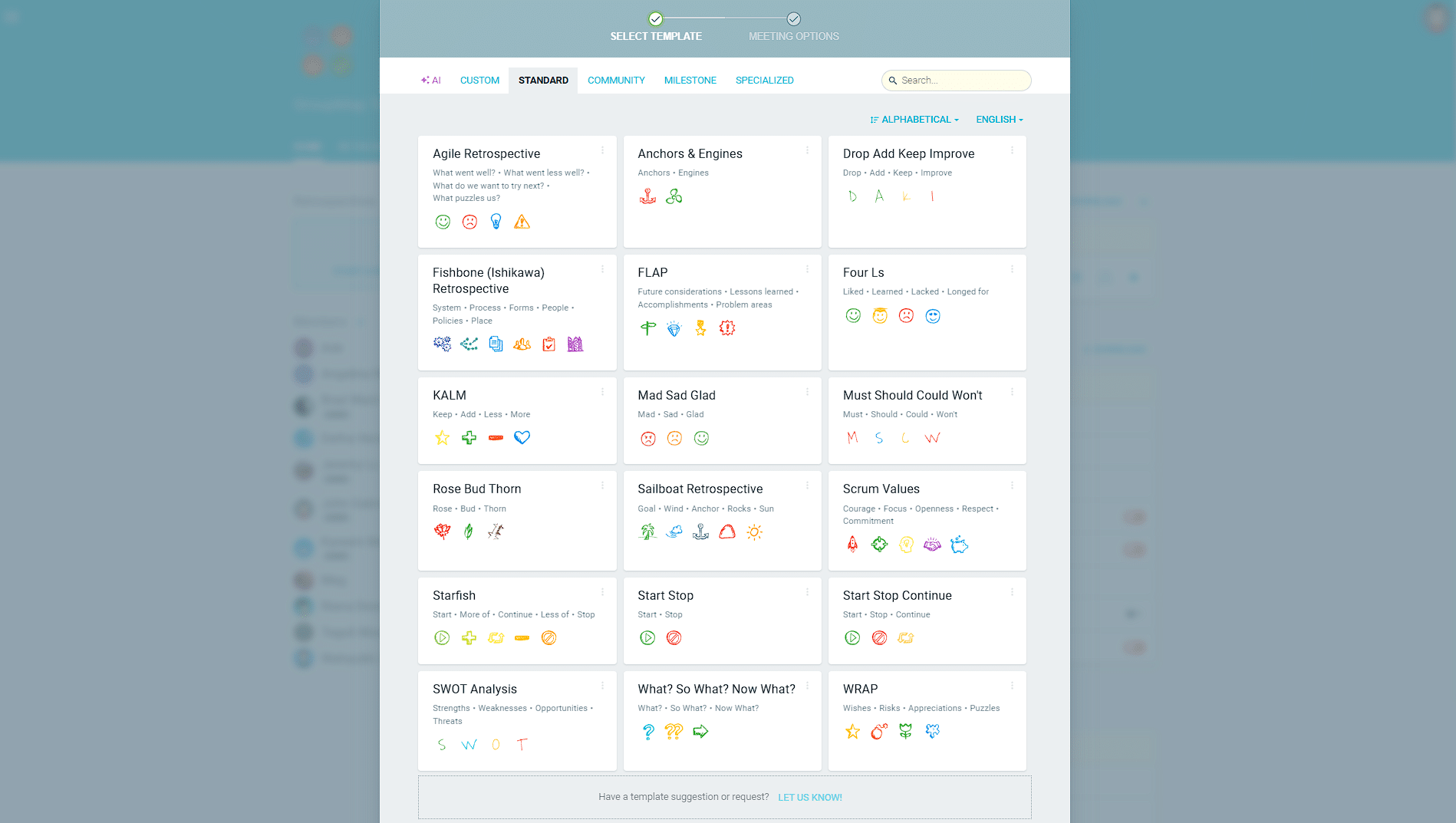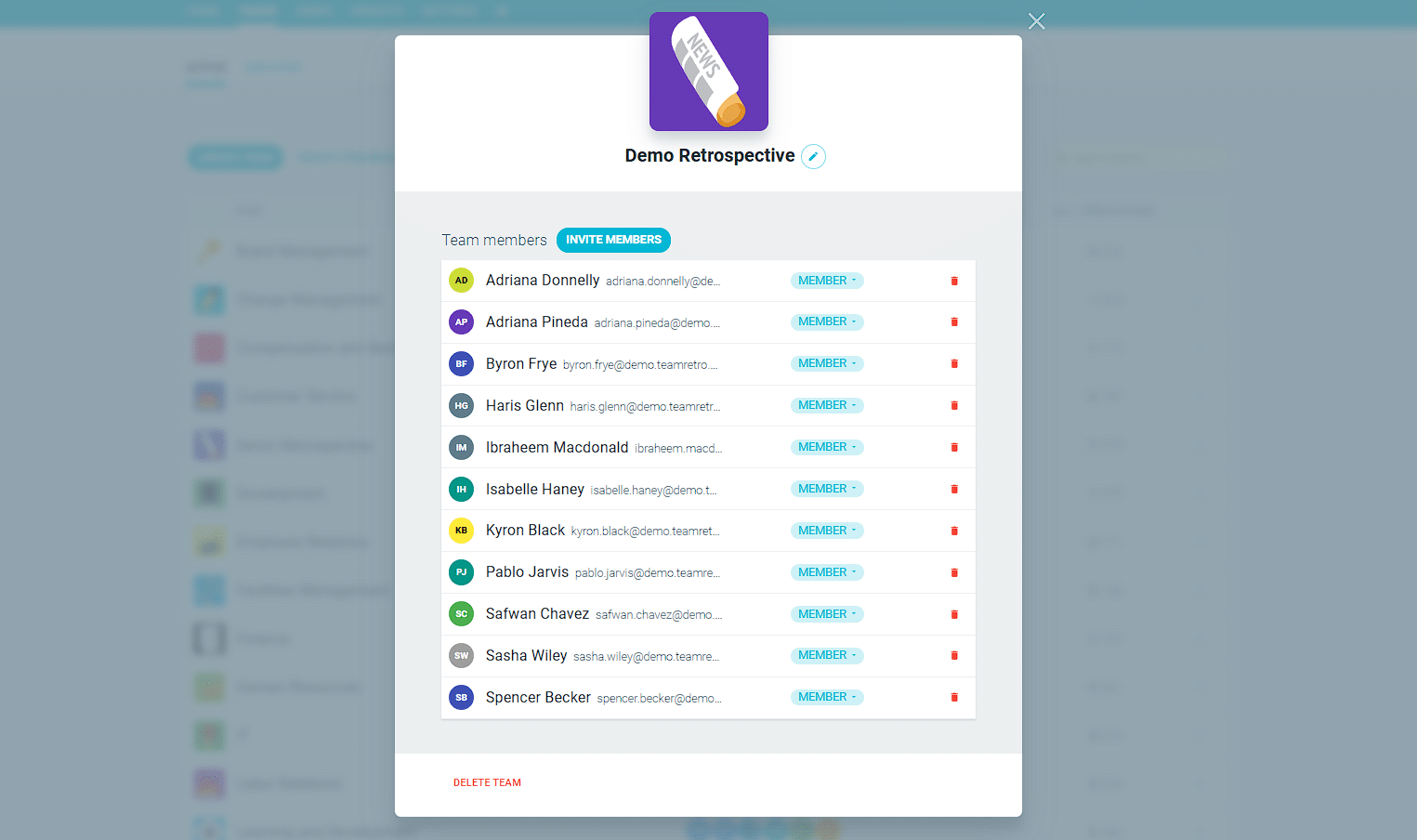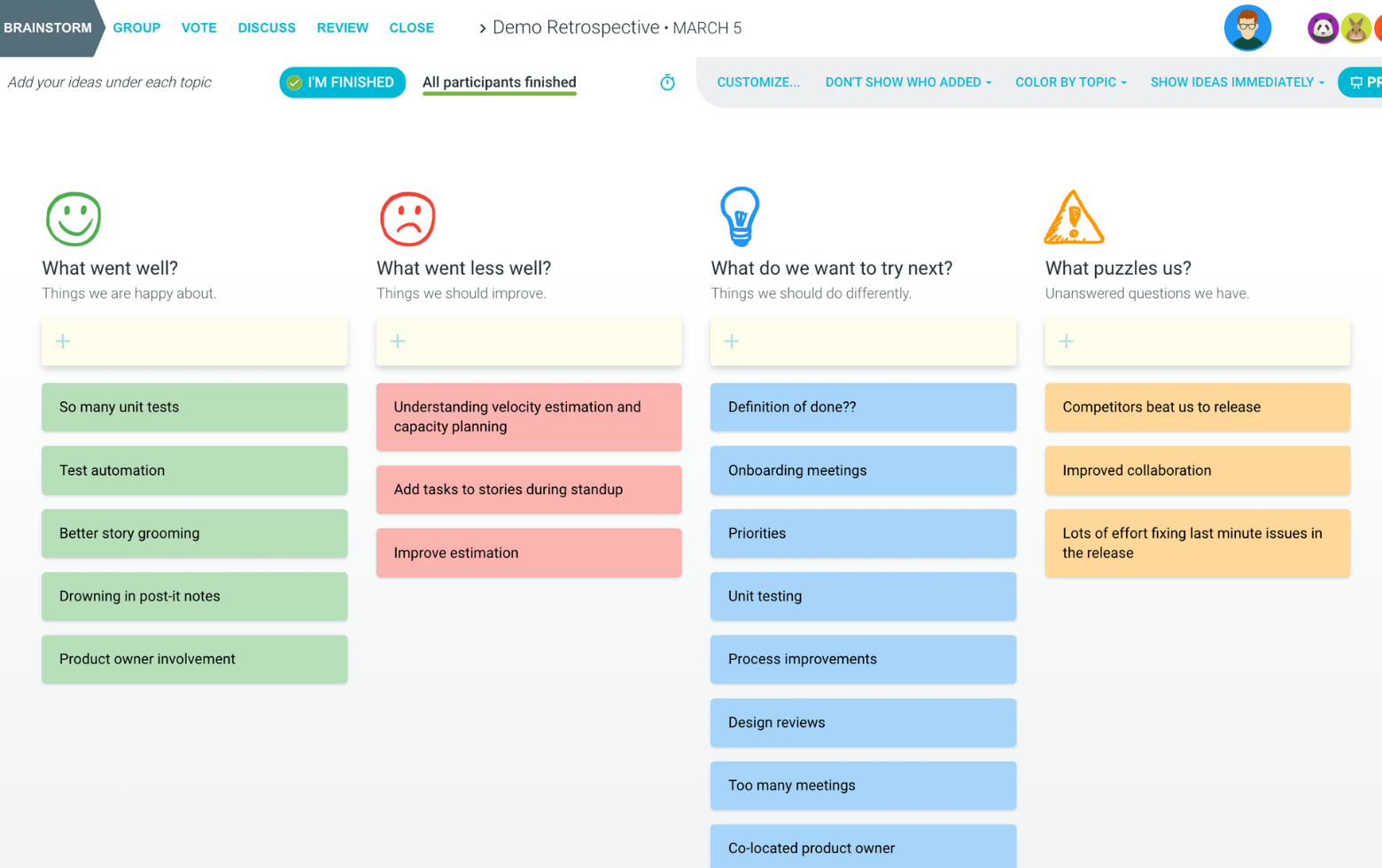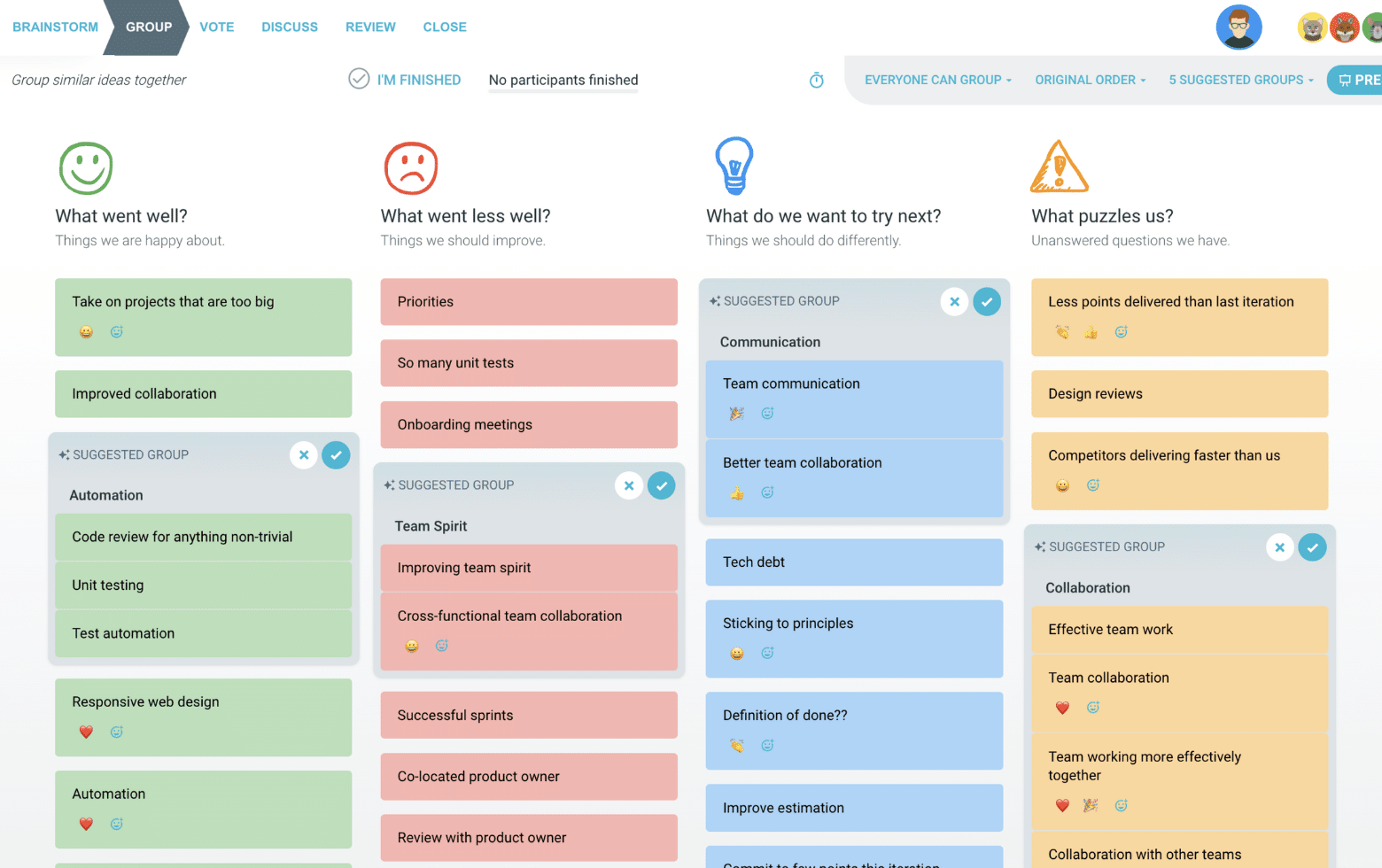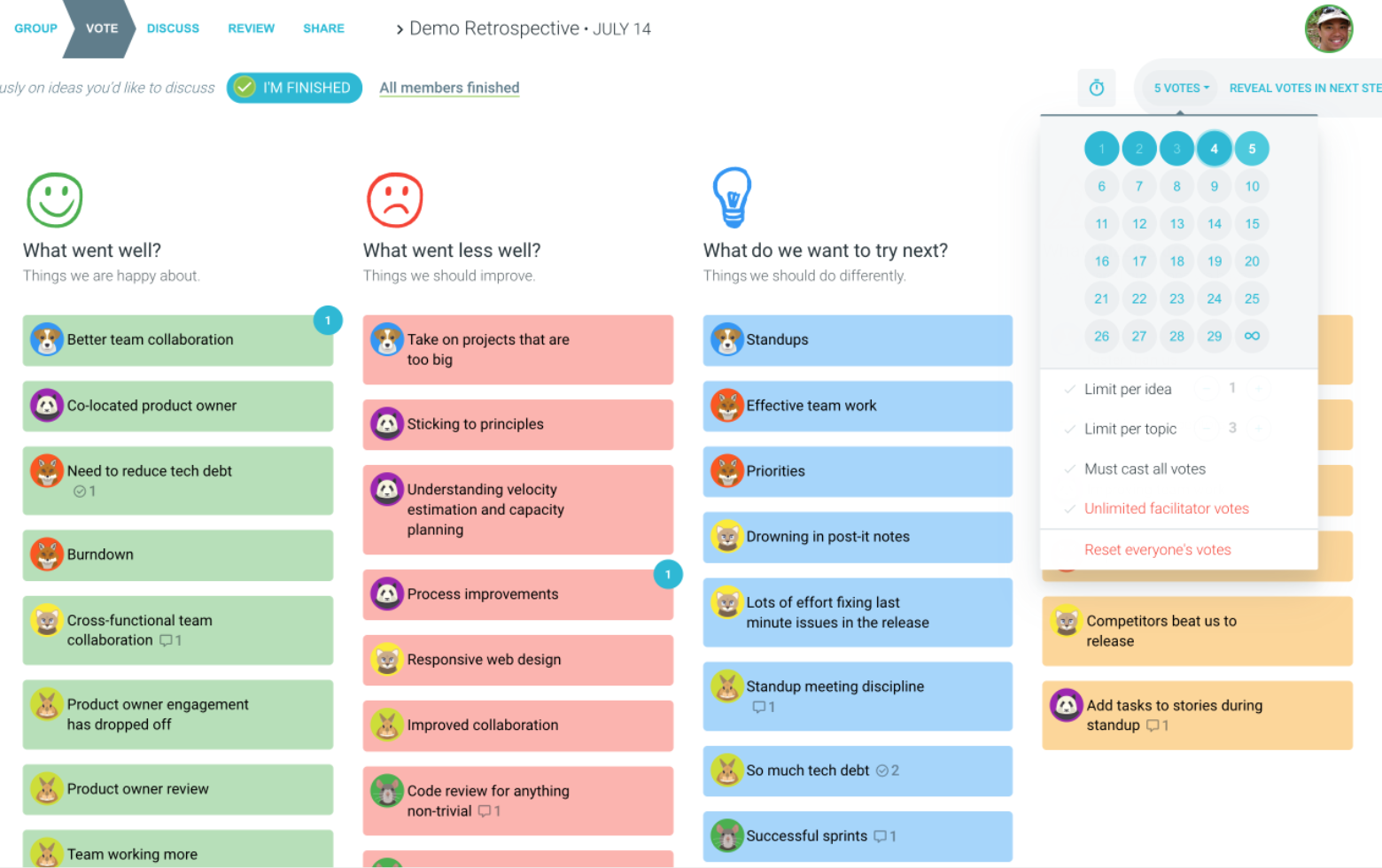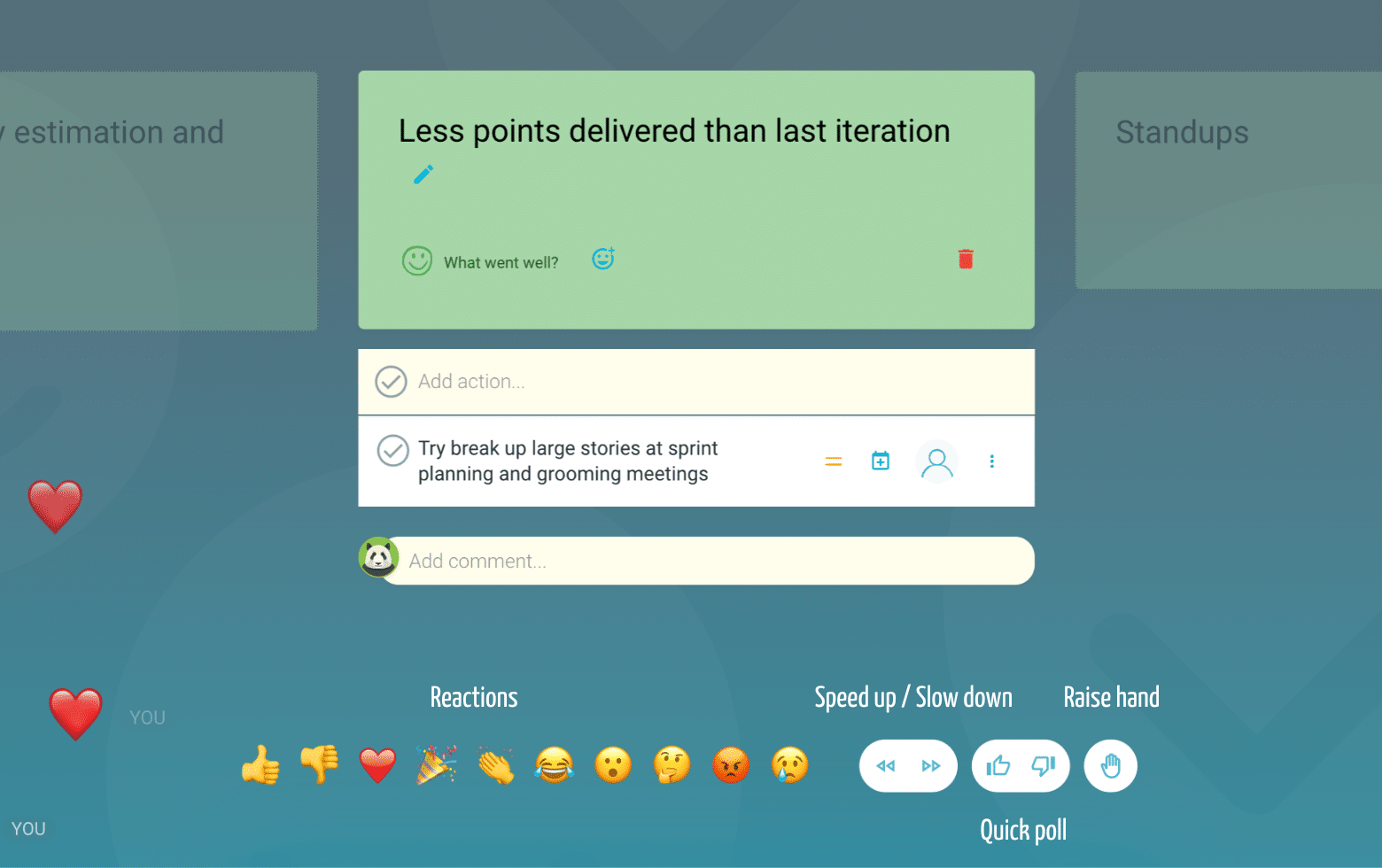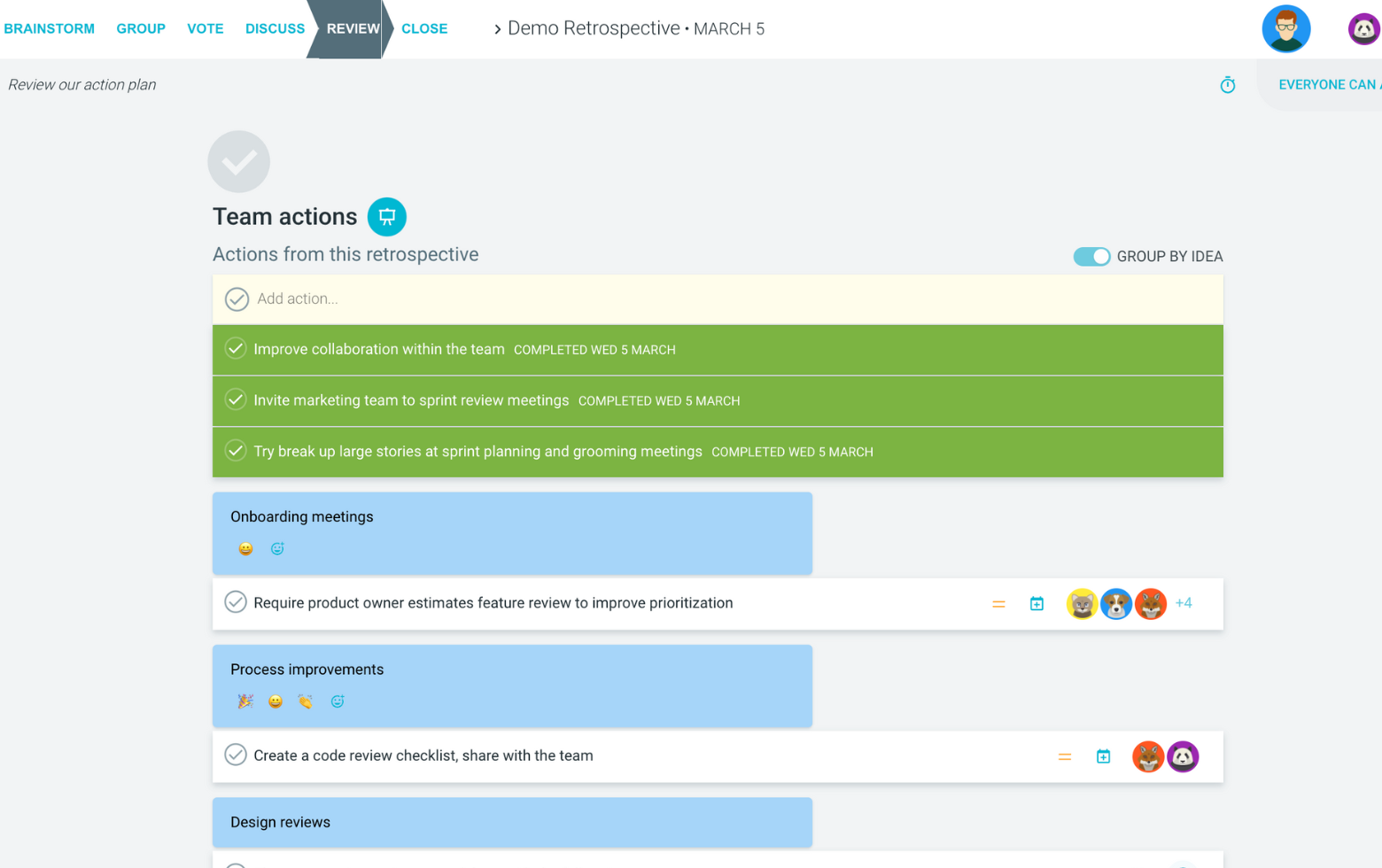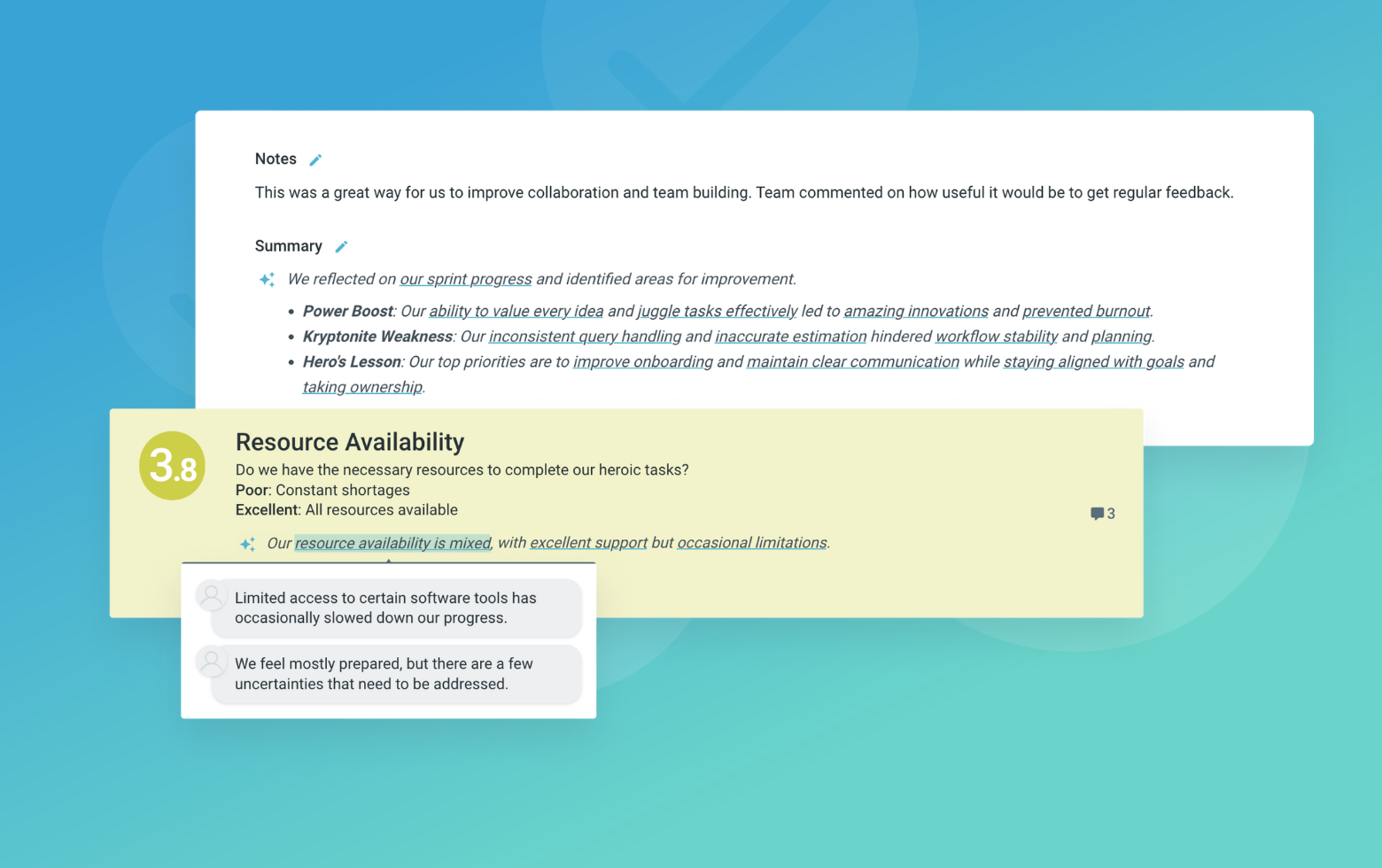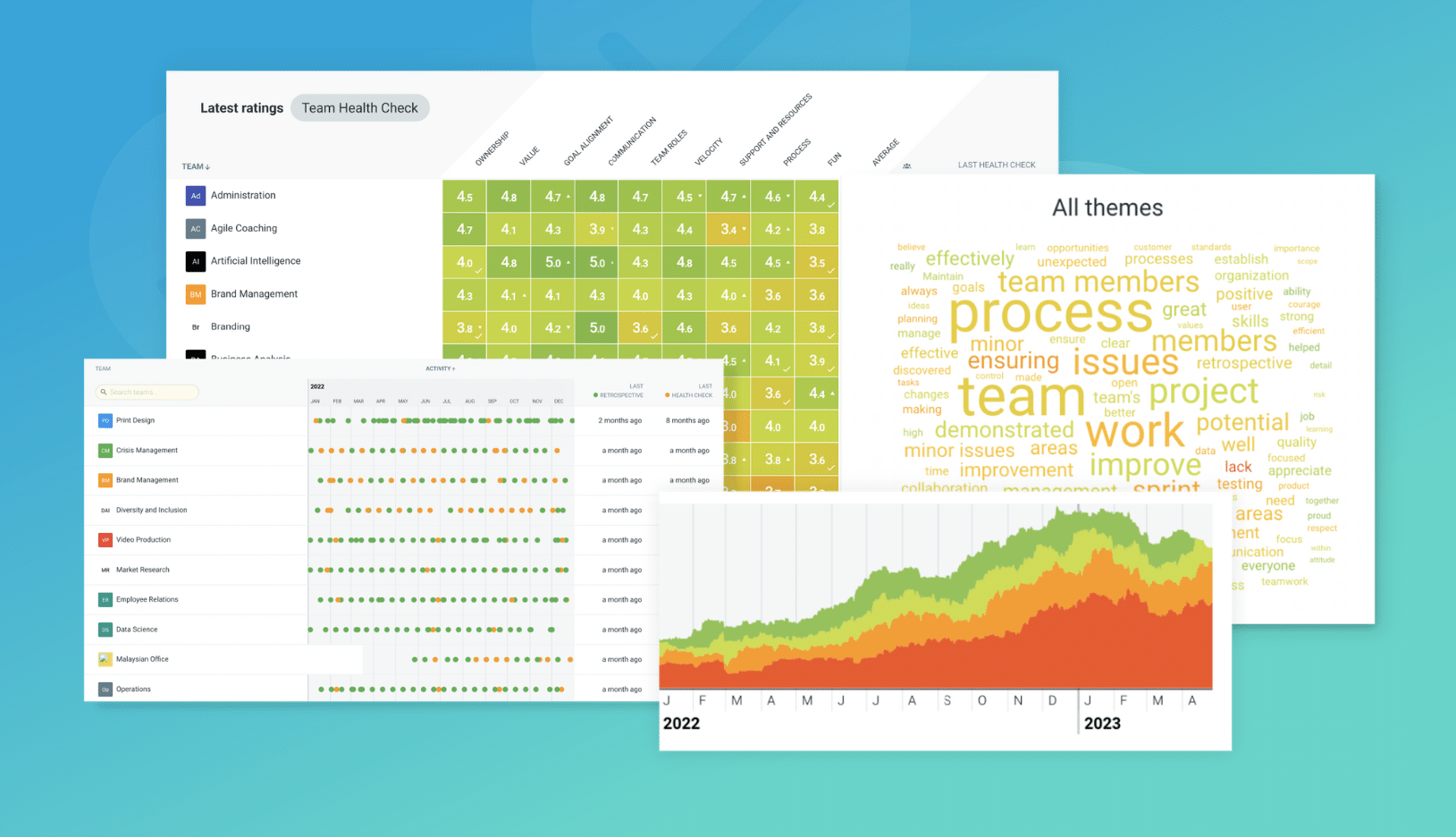DevOps (a portmanteau of "development" and "operations") is the combination of practices and tools designed to increase an organization's ability to deliver applications and services faster than traditional software development processes.
A DevOps retrospective is a structured meeting where development and operations teams reflect on their recent work, processes, and collaboration. It provides an opportunity to identify what went well, areas for improvement, and actionable steps to enhance DevOps practices.
This retrospective template is designed to facilitate open discussions, foster continuous improvement, and strengthen the synergy between development and operations teams. By regularly reviewing successes, challenges, and lessons learned, teams can adapt their workflows, tools, and communication to deliver high-quality software more efficiently.
The origins of retrospectives can be traced back to Agile methodologies, but their value extends to any cross-functional team seeking to optimize their processes and teamwork.
What is The DevOps Retrospective
Successful Deployments
What went well during recent deployments?
Encourage teams to share positive experiences and effective practices.
Areas for Improvement
What challenges did we face, and how can we do better?
Encourage open and constructive feedback without blame.
Collaboration and Culture
How can we improve teamwork and foster a DevOps culture?
Discuss ways to break down silos and promote shared responsibility.
Tools and Processes
How can we optimize our tools, technologies, and processes?
Discuss ways to leverage automation and streamline workflows.
Suggested icebreaker questions
- If you could automate one manual task, what would it be and why?
- Share a recent 'aha' moment or learning experience related to DevOps practices.
Ideas and tips for your retrospective meeting
- Encourage open and honest feedback by creating a safe and blameless environment.
- Involve both development and operations teams to gain diverse perspectives.
- Focus on actionable improvements rather than dwelling on past mistakes.
- Assign clear owners and timelines for implementing agreed-upon actions.
- Celebrate successes and recognize contributions to boost morale and engagement.
- Regularly review and adjust the retrospective format to keep it fresh and relevant.
.
How to run effective meetings with TeamRetro
Start Your Session in a Click
Log into TeamRetro and choose your template. Customise questions and the workflow to create your perfect retro for your team.
Create Your Team Easily – No Separate Accounts Needed
Brainstorm Individually – Free From Bias
Smart Grouping for Faster Insights
Fair, Flexible, and Fast Voting
Engage, React, and Capture Key Insights
Walk your team through ideas one by one with Presentation Mode. Stay in sync, spark real-time discussions, and capture feedback with comments, live reactions, and polls—all in one place.
Turn Ideas Into Action
Propose next steps with team buy-in, get AI-powered action suggestions, and keep everything in one place. Committed actions sync to your personal dashboard and integrate with your workflow tools—keeping you on track.
Save, Share, and Stay on Track
Get quick AI-powered summaries, add facilitator notes, and store retrospectives in your library for easy access. Schedule your next session and track published actions to keep your team accountable at the next retro.
Turn Team Data into Actionable Insights
Uncover trends, common themes, and key engagement metrics at a glance. Track sentiment shifts, analyze conversations, and monitor completed actions to drive continuous improvement.
